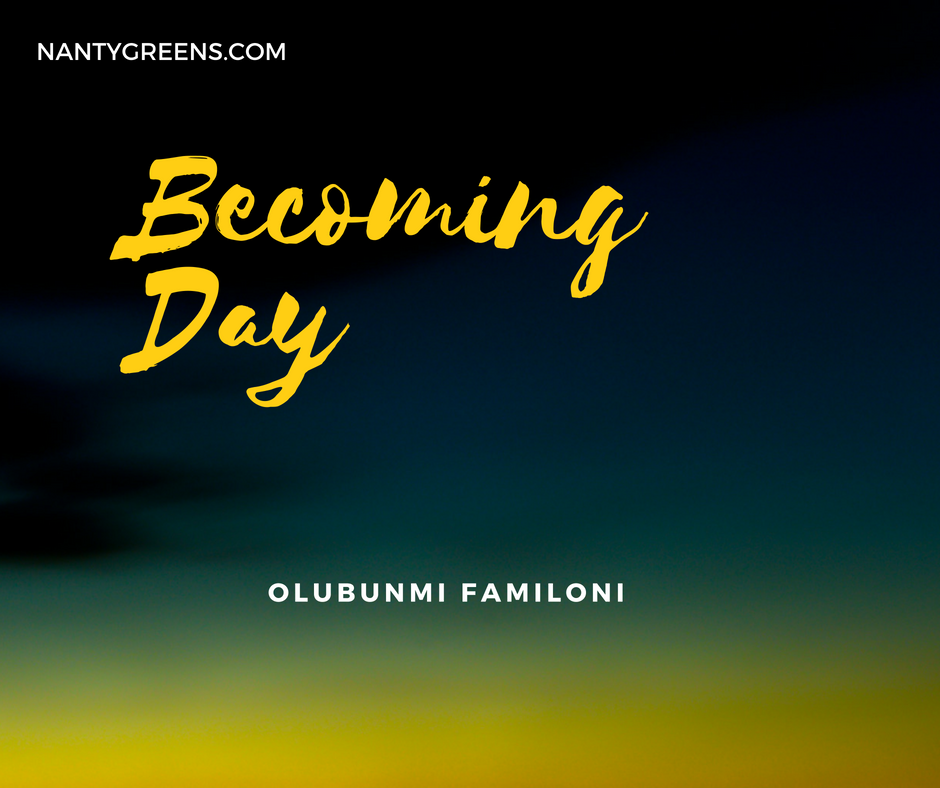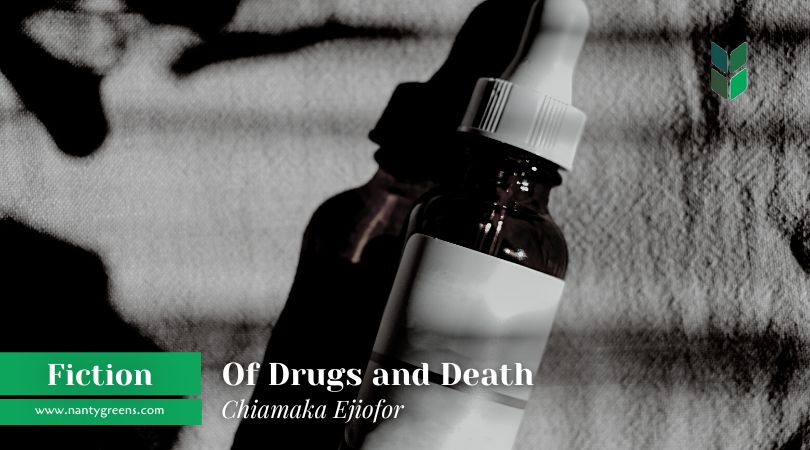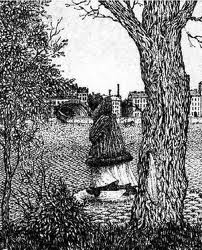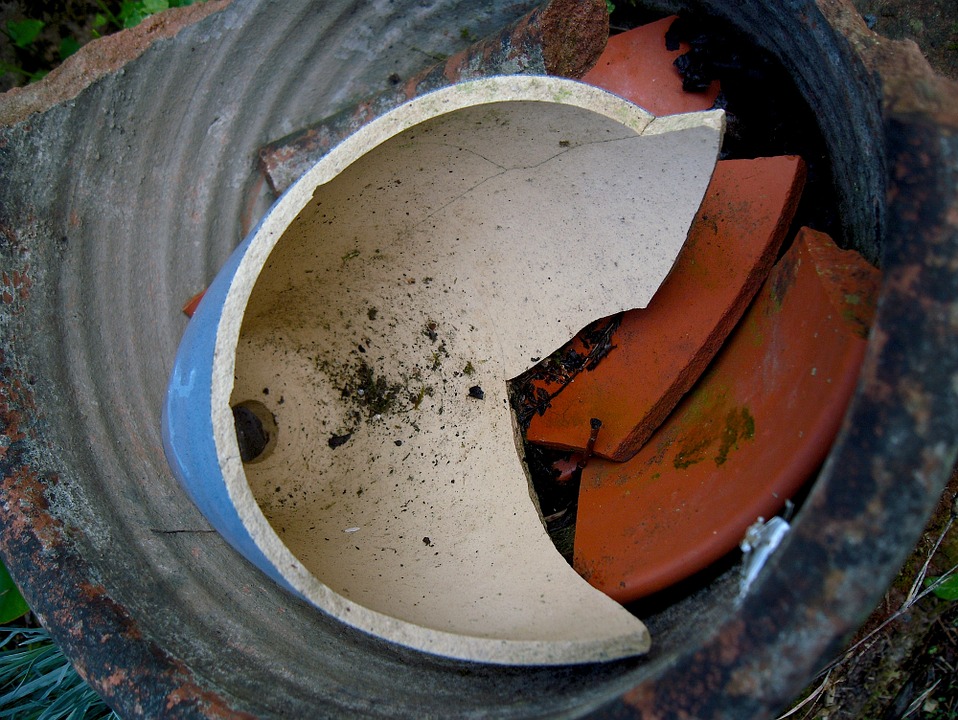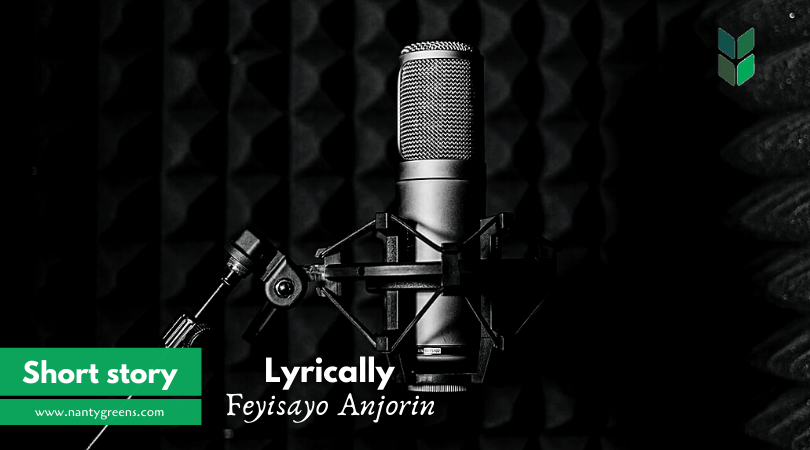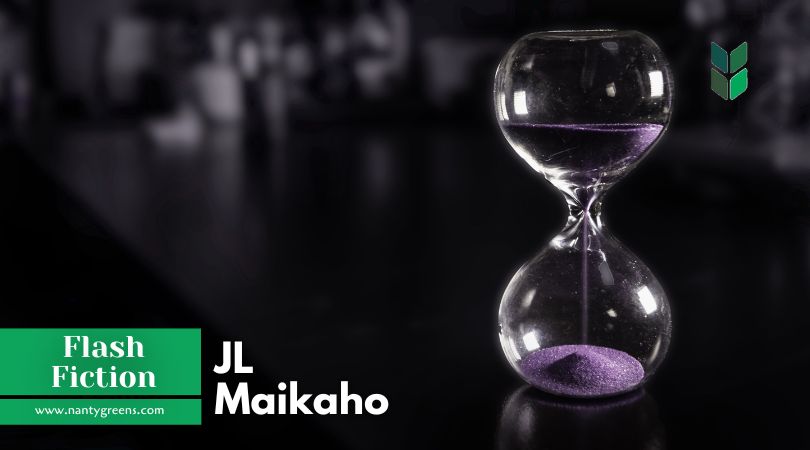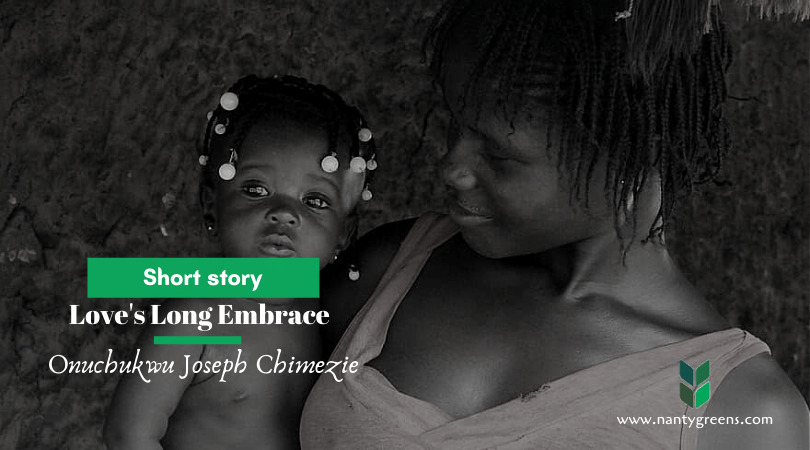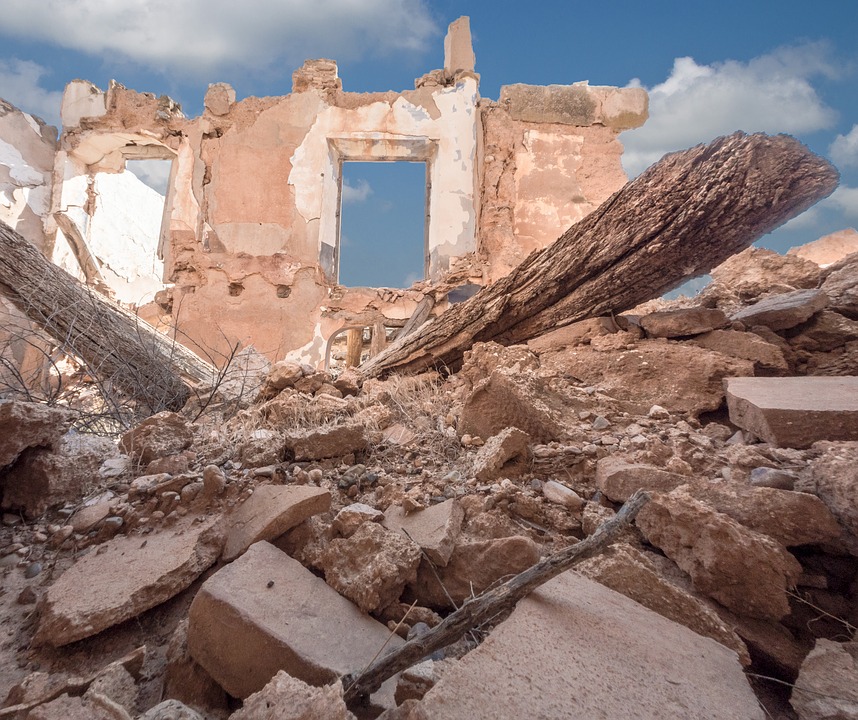Oloye has a wife now. It is a thing of joy that he’s found his significant other, but it worries us. The day he brought her to us our hearts sank. She was not the person we thought she was. They appeared at Agbole together, dissimilar, word and opposite: Oloye petite, with scraggly beard and receding hairline, his face warped at the jowl as with avocado; his wife, heavy from up down, her behind like basia; mammary glands jolting with every step she took. It is from that day we knew that this new thing is beyond us.
It is not that we begged her people for her. Our son had already sown his seed inside her. How they did it, we still do not know. We just tied them together in our small way and let them do whatever. Yourself, myself and Ba Rofia, did not attend: after all, Oloye saw other women before he chose this one, and you, you couldn’t possibly come.
We sent a delegate from our people to go see them. Malami was one of them, Ba Moria of Idi Ape, Ba Walia, Iya Sunna, Alhaji Elepo, who was the leader of the delegation, went and they brought back stories for us. Ba Rofia, in this type of arrangement what do you expect? It is painful how children of nowadays think that our brain has gone foggy with age, as if they have seen more than us. Even if they have seen things, did our great grandfathers not say that if a child has more clothes than an adult he certainly does not have more rags than that adult?
What Oloye has brought upon himself is like stuffing a full loaf of bread in the mouth of a child. What mouth does he have to eat it? Since the day of the introduction a lot has happened.
Olori Ebi says the family of the woman gave them another list. Imagine, that family, they do not have an ounce of shame. How expensive have shame become that the poor, who are supposed to have it most, cannot even afford it. Imagine, after all we managed to arrange for them at the introduction they still want more for a daughter we really don’t want. This one is only here to take times four of what is available for the other wives.
When we brought these women into our household they were as tender as the spine of mango leaves. After they got here, they started to inflate and inflate like balloons. This is testament to how well we treat our wives. Oloye’s mother herself wasn’t different: her cheekbones that time were nearly piercing the skin of her face. Now you will see her and marvel at the wonder she has become, is this Risika, Iyawo Mogaji, the one who spilt blood on Oloye’s head?
Oloye brought the woman to us on a Sunday evening. Every Sunday we hold family meetings where we discuss salient issues affecting us in our family at the middle of the compound. Agbole had three separate houses. Each building wearing its own color. Beside each of the building, there’s an outhouse where people can lower themselves and feed the earth through its gaping mouth. A well, which provided water for the entire household, stood detached at the far left corner near the azure building Oloye’s father had lived in prior to his death. The building wore a new colour from the ochre dust it had swallowed from the Harmattan. The middle of the compound was a sacred place. During Ramadan Alhaji Elepo would lead tarawiiy prayers there. It was the venue of our meeting. We had just finished addressing the issue of the well when he inched in on me, whispering things into my ears. I cleared my throat and searched the ground for my slippers with my feet and helped myself up from the bench.
– This is a surprising request. Not so surprising, anyway. The people before us have done it for us, their children. It is only right that we do it for others, too. Is it not you, our elders that say one day a child will become an adult?
Everyone bounced their head in affirmation. Alhaji Elepo muttered e ba thoughtfully.
– Our son here, Oloye, has come of age.
I paused and took a swig of palmwine from the butta. I grimaced and kissed my teeth, savouring the tartness of the drink as it first levelled on my tongue. It submerged every corner of my mouth and slipped down my throat, leaving a cloying taste in its wake. Is this real palmwine or sugar palmwine? I wondered.
– Our son here, has finally come of age.
I said with more confidence. My reiteration was greeted by hoots and swift neck turns by the elders towards Oloye, as if to say, boy, what do you have to say about this?
– Oloye, stand up and tell them with your mouth, abi are you scared? We are your fathers and we are commanding you to speak!
– Toh!
He gathered himself up, wiping dried saliva from the sides of his mouth. He splayed himself onto the tarnished cement floor of the compound in a gesture of respect and corroborated my revelation.
– O to ni, I have brought the woman I want to marry.
– Haha!! Okunrin fun ra e!
The older men chorused, teasingly.
– We too, we know you are grown enough to put a woman in your house!
– We have been waiting for this day!
– Where is she from?
– Omo Ilorin ni.
Ilorin girl. That’s good. Our fathers were from Samonda, Ibadan. But we had been in Ilorin for long enough to be regarded as Ilorin people, too. In fact, Ilorin was the only place we ever knew. This made it good, because all our wives were indigene of Ilorin. We stood a great chance in front of our prospective in-laws, then.
– Where’s the girl, did you not bring her with you?
The elders spoke with urgency.
Oloye sprang to his feet and skittered into his father’s part of the compound. We chattered excitedly at this news. Alhaji Elepo rendered prayers in between crushing bitter kola under the weight of his browning teeth and rolling his agbada into peels. The air of the compound drifted with renewed gusto. It carried with it gossip of the women of the house who had somehow gleaned the story of Oloye’s impending oyigi. We, the elders were not bothered, after all, it was what the women were good at, gossip! Oloye emerged from the building, his lace curling with the evening breeze, behind him, a woman wearing and-co swaggered with a suave demeanor.
As they approached, we cleared the bench for them to seat. Oloye ushered the woman towards us.
The woman genuflected. Alhaji Elepo and Ba Moria dove towards the woman, preventing her knees from touching the ground. They said it was abominable for someone old to be keeling over for another old person; that was stuff for the young folks to do. The woman smiled shyly. When she spoke, she made intermittent stops to readjust her gele, which was still gleaming despite of the waning evening light. Her tone was sibilant. Her words careened out of her mouth, apart, one by one, like the formation of flitting dragonflies. Silifa, she said her name was. She sold ankara at Oja Oba where she was the market women leader. A frisson of shock cobbled us, with open mouth we regarded her. Olori Ebi was licking his upper lip with the lower one cupping it: whether it was with platonic admiration or salacious yearnings, it is not from my mouth you will hear that, Ba Rofia.
– Wos! Iya yi da! Bring Orobo for our visitor, o-jare!
Olori Ebi issued the command. Not long, his youngest wife, Iya Ibeji, scuttled towards the middle of the house, a bottle of soft drink and a coloured plastic cup ensconced between either of her palms. A conspiratorial smile played on her cheeks. She popped the cork of the drink open. A hissing sound emanated from it and then a wisp whirled out of its mouth. She poured the drink in the plastic cup she had brought. The content of the bottle smoothed out in short dark cords, fizzing chillingly as it touched the inside of the plastic. She placed the cover of the bottle on it again and gently laid it close to the side of the guest. Then she skittered back into her hideout, the way she had come. Olori Ebi cleared his throat as the figure of his wife gradually disappeared from view.
– Okay now, where is our wife?
The woman wearing and-co with Oloye made to kneel down again. This time, no one prevented her from doing so. Oloye gathered himself up, and spoke without restraint.
– This is the wife I want to marry.
Our eyes shot out in astonishment. We told Oloye that this could not possibly be so and commanded him to go inside and bring his real wife. He said no, that this was his real wife.
– Ngbo, Silifa, abi what do you call yourself again, is that so?
Olori Ebi chewed the words with his kola. –That you’re the one he’s chosen to marry.
– Yes, Baba wa. He is the one me I want to marry.
The meeting fell silent. The silence could have lasted moments because nobody said anything for a long time. Occasionally, there was the rustling of plastic bags, and the dull whine of Alhaji Elepo’s starched Guinea Brocade each time he rolled it into folds, and the clang of metal pots hitting cement from inside of one of the kitchens. We heard small whispers from women inside the main house. By now we had overcome our shock. But I still have the bottom of my pen trapped between my teeth. I had stopped writing the very moment Oloye said this was the person he wanted to marry. Olori Ebi sat up from his chair, our attention now turned to him.
– Oloye, is that what you really really want?
– Ba’mi, yes sir.
– O-sure?
– Yes, sir.
Turning towards Silifa, Olori Ebi said,
– When do we come to your people for introduction?
– Thank you, Baba wa, I will talk to my people and we will pick a date and start to prepare for your visit.
Our wives filed out of wherever they had been, each following the other according to seniority. Iya Sunna was the leader of the pack, as you should know, Iya Modiu, Olori Ebi’s youngest wife, was the last. They walked about us, shooting cautious glances and hollering greetings, then feigning disinterest in whatever the activity going on in the meeting was. Inside my note, I scrawled that day’s date and wrote:
“11-11-10: Oloye’s wife-to-be is young and she’s seen things too big for a small child. It is only from her voice that you’ll know how young she indeed is. What she’s eaten is bigger than whatever any old woman could possibly lay claim to. She’s a humongous: her cheeks are puffy; she has no neck, or rather her neck has hidden under the weight of her head; her breasts are the size of ogiri-bara; and her bottom is such that it can make any chair cringe no matter how sturdy it is built; her skin colour is fire yellow, the kind that is so attractive and yet can cause danger when you touch it; she doesn’t speak, her voice floats out of her mouth and settles in ears like motes of dust. This is too much for a small boy like Oloye, but we want for him whatever he wants for himself, anyway. I am sure his father, my elder brother, is turning in his grave now.”
Ba Rofia, before the unfortunate incident that made you forget everything, you were our akowe—secretary. You took minutes and record happenings in our family. Now that you cannot do all of that again, Olori Ebi has given me the mantle as the new akowe of the family until you recover. I am happy that you can at least recognise my face very well. It is the one thing that gives me hope that you will recover completely and take your position again as the akowe, because nobody else can do it the way you do. This is why everyone prefers to call you Akowe!, Akowe!, instead of calling you by the name of your first daughter—Rofia. You liked the name Akowe and how it added regality to your being: everywhere you go, they are saying Akowe wa, even people who are not part of our family know you as Akowe, and you will carry your shoulders when walking; if you are driving that your blue V-Boot, your horns keep blaring.
That your V-Boot it is Ba Moria, the one who lives at Idi Ape, who now drives it. The V-Boot you bought after seeing it in a Sunny Deol movie. It does not befit him when he drives; as it did when you drove it. Your eye brows are knitted now that I talk about V-Boot. Is it that you remember? It is good, if it is so. Because people are saying that blood has splashed into your brain and that you have lost your mind. I tell them if true true blood has splashed in your brain that you would not be sitting down here just staring and not remembering people’s faces and anything. I tell them you will have been on the street roaming and carrying craze-man load the way Osubu does.
Oloye has not come to see you, I hear. You were really close to him before this happened to you. In fact, you treated him like both a son and a brother. That your V-Boot he and Ba Moria nearly fought for it. But we have agreed that when we expend all the money you have on your hospital bills we will put for sale on the car. It is sad how a strong man like you are now in such a helpless state. It is not as if you have ever done me good when you were fit as fiddle. It is because I feel pity for you that I am here in the hospital to help you through recovery. The doctor, the one with the big nose, said you need people to recover. But you have no one. Your wife has left you: she says she cannot be suffering on your behalf that if it was her who had been this unfortunate you would take her back to her family and say you are not doing again.
It was on Saturday. You were chewing chewing stick and spitting out the nibbled particles into the gutter. Your towel was slipping down your hairy tummy. Your stainless steel cup was on your left hand, the chewing stick held firmly between your teeth, your right hand suspending the towel to prevent it from falling. It was in front of your house at Ita Kudimo. The street boys had nothing to do that weekend. They were kicking a full Health about. Sometimes they disagreed about who scored, sometimes it was whose turn it was they argued about after a goal was scored. You watched them, as they went about their business. You moved toward the fence by the side of your house and positioned the cup on it. You retied your towel again and picked the cup from where you left it. As you moved towards your earlier position, something hit you splat in the face. The cup dropped with a twang, its content splashing out and leaving small dark maps on the floor. The chewing stick skidded off your mouth. Your towel slithered off your waist, exposing what you used to do man. The boys stared on in both alarm and shock. You were dizzy at first, but you were not the one to give in easily. You tried to balance yourself. You fell face down and landed with a thud. The boys rushed forwards and took you inside. Your wife was wailing and creating a scene in the compound. They put Aporo epa Ijebu in your mouth, you spat it out in dark clumps. A part of your body had gone limp before they decided to take you to the hospital.
It was Alhaji Elepo that called me. He said your situation was really critical. And that it had even taken a new twist. Are you crying? Please do not cry, it is talk I want you to talk back to me. They said your wife had left you. She wasn’t doing again. It wasn’t her fault. There is a limit to what we as humans can bear. Look at you now, the first day you got to the hospital you had stained the mattress and sheets with brown excrement. It was really an awful thing to see. Your wife took it and washed it. Less than 20-minute you had done another, it was when she said she was not doing again, that enough was enough. Ever since then, all the shit you have shit that time, it was I who tended to it. You and I, soap and eye, we hardly ever talk without confrontation, now your illness has brought us together in a term no one in our family could assume possible.
The introduction held at Silifa’s family house. It was just behind that mosque adorned with the colour of the Nigerian flag—green white green. The mosque’s minaret rose high but couldn’t match the one at the grand mosque at Oja Gboro both in aesthetics and repute. That mosque is the largest in Ilorin with its tastefully finished gold domes and brown high gates. It was your Mercedes Benz V-Boot that took them there; they navigated the dirt road of Idi Ape, through the potholes around Balogun Fulani, and the massing bodies at Oja Oba, then they turned right at that roundabout flanking the mosque on to the road leading to Oke Kura. Oke Kura was not a good place to be driving to. The road had been modified with four larger-than-normal speed bumps because of the prison. Each of the bump had a black, brown-red-eyed, stone-faced man with a down-to-earth corroded AK47 rifle clutching his chest or wherever the officer deemed fit: sandbags and metal drums were mounted at opposing ends, too, one eating more to the right side of the road, the order eating more to left. This meant that if you were driving your car or okada you would likely do a python dance before your car made it past the place. Do you know that no normal citizen in this our town has ever seen beyond the high fences of the prison? There is a sturdy metal gate one had to go through to gain entrance into the premises. The gate is mildewed by age and persistent harsh weather. But no one had any idea if it had witness a break before. The green-white mosque was about eight buildings apart from the prison.
It is like you recall how that place looked? I am happy now, you know, last week all the things I said to you were met with blank stares and when you were tired you dozed off with dross oozing at the side of your mouth. I am doing my best to help you, as now, I do not have any work again. Today now, you have flashed a knowing smile, you have expressed worry when it looked like I would stop, your mouth is straight and your face is down with health, it appears your medicine is working. If you keep recovering like this maybe we would not sell your car again. You smile wanly, I see it, you so much like that car, do not worry, we will not put for sale on the car again, just recover. Do you want to eat? I brought ogi and akara, o. My wife made it. She says I should tell you that you have seen more of me than she had the past one week. Do not worry, she is only jealous, I will not leave you because of somebody’s jealousy, after all you are the healthy one. Let me tell you the story of how Oke Kura became Oke Kura. Of course, you would know, as you are the older person, if not for this thing that has done you in. I want to say it the way our father would say it, so listen, look at you, you are set now, eh?
Back in the day, the whole Oke Kura was nothing but a bush. An assortment of trees, shrubs and weeds, were occupying what is now home to many people and a federal prison. The air was fresh and devoid of pollutants, except for the white smoke billowing from old women and housewives’ adogan—firewood stove. The men played draughts and listen to alagbe croon their feel-good music at the township after farm hours. Life was normal enough. Until one by one, at the point where the prison now sit, men began to scream in horror, then they would disappear and that was the end of them. This continued to happen with the mogaji seeking help where he could. Then the Nigerian government came and launched an enquiry into the cause of the disappearances. They found out that a tiger was at the base of all the disappearances. They sent men to hunt down the tiger and built a prison there thinking that it would take a long while before the place developed. It was from then that the whole area became known as Oke Kura.
Alhaji Elepo’s son, Sheriff, chauffeured his father, augmenting his importance in the eyes of the people they were going to meet. Ba Moria rode alongside Olori Ebi in your car. Iya Sunna and Ba Walia and Malami and some of our neighbours at Agbole hired a bus to take them there. They got to Silifa’s family house and were ushered into a spacious parlour where a TV set and sewing machine where pushed back to make space for people to seat. A ceiling fan puffed above, exhaling warm air. The woman’s family rose from the chair and offered their greetings. The program began after all the marital camaraderie.
– Solu ala n nabiiyi Kareem! Solu ala n nabiiyi Kareem! Solu ala n nabiiyi Kareem!
The MC’s voice crescendoed,
– Bisimillahi Rahamani Rohim! We are here today to witness the establishment of a new relationship. A relationship formed by the will of Allah. A relationship that will only see good times.
The MC paused, wiped his face with a white handkerchief and coughed into it. His audience had begun to fan themselves with hand fan, their scarves and caps. He resumed,
– We are here to witness the beginning of a new relationship between the family of Monsuru Alaaya of Oke Kura, Ilorin and Sikirudeen Adeyemo all the way from Samonda, in far-far Ibadan.
Someone from the crowd slinked towards the MC and whispered something into his ears. The MC narrowed his eyes, stream of sweat rolled down his face. Aware of his blunder, he deftly recanted his earlier statement.
-Well, the family of Sakirudeen Adeyemo are originally from Samonda in Ibadan, as I have mentioned earlier. But all of their offspring were born in Ilorin and they have lived all their lives and established things in this our great land. You will agree with me that when strangers rub body with aboriginals, they become aboriginals, too. Abi, is that not how it is?
– It is how it is, Uncle MC.
The crowd thundered with glee.
Oloye restrained himself not to pull off his cap in the heat. A little boy sat beside him, fanning him with devotion, while he followed the event in agitation.
– Tor! Our mothers have spoken. So, without wasting much of our time, I will call on the head of the family to introduce his family and make clear the reason why they have come here today. Thank you.
Olori Ebi gently stood up on his feet. He bit into a kolanut and swallowed. His armpits were mapped with brown sweat marks. Sheriff passed his face towel to him. He wiped his neck and his face with the towel and tossed it back to his son. The crowd began to murmur. Olori Ebi swaggered towards the centre of the room, and patted the MC by the shoulder. He thanked him for his skillful handling of the event. He raised his hand and bellowed:
– Solu ala n Nabiiyi Kareem!
The crowd fell into a hush, as if hypnotised by the words. Suddenly, they regained their senses and thundered:
– Salalahu Alaheem wa Salam!
– We thank all of you that have honored our invitation to this joyous event. First of all, without wasting much of your time, my name is Wahhabi Adeyemo. I am the head of the Adeyemo family. And we have come here on behalf of our son, Kabiru Oloye Adeyemo.
The family head sighed, and glanced over his shoulder towards the position of Kabiru, despair clouding his face.
– This Kabiru that you’re seeing, we are the ones left for him as father, mother, and even brother and sister. Iya Sunna, right there, is his mother. It was like yesterday when he was a boy crying over the body of both of his parents, oblivious of what had happened. He called out to them. They were silent. Unmoving. Lassa fever killed them. But we are certain it is not ordinary eyes. Regardless of that, may Almighty Allah grant them alu-Jannah.”
– Amin!
– Tor, it is a joyous thing we have come here to do with each other today. Let us not let the pain of yesterday becloud the sweetness of today. Where are our in-laws? We greet you people, o. Joyous things will never cease to happen in your household.
– Amin-o ya Allah.
– Tor, to not waste your time, we are from the Adeyemo family. We are not from Ilorin, originally. But our forefathers migrated to this place. As you wise ones always say that ‘if tree has stayed too long in the soap, it will become soap.’ And to not overflog issues, Ilorin and Ibadan we have become one. You will remember back in time that our people even come here to learn Islamic education from all the great Shehu’s this town has produced. Till date, they still come to learn in this town.
He traced forms in the air with his hand. The invitees shifted their weight on the chair, simultaneously fanning heat off themselves. The ceiling fan continued to give off warm air.
– We’re born in this town and we’ve enjoyed all the benefits that this town has to offer. This is why all of our family are here: to pluck from the fruit your family has planted since it has ripened and God has blessed the fruit. All the fruit that this town has produced has alubarika, we’re sure that this one we’ve come to pluck wouldn’t be different. E ba, thank you so much.
At the end of Olori Ebi’s delivery, the bride-to-be moved surreptitiously towards him and knelt down before him. Olori Ebi crooned praises and prayers to her. Her face lit up and dulled by both enthusiasm and exhaustion. The MC read out the list of items the groom was supposed to bring before the bride family would put their blessing to the matrimony: Owo Alafa, Owo Obinrin-Ile, 42 Kolanuts, Owo Iya Iyawo, Qur’an, tesbih, wristwatch, stock pot, owo Baba Iyawo, aso yigi, tray and umbrella. Not a single one among the items were omitted. Olori Ebi grinned with satisfaction, exposing a part of his brown teeth.
Oloye is no longer at Agaka. He now drives the taxi his wife bought for him. She had said that Oloye could not possibly be feeding her with the meagre proceeds he earned from his rewire work. It is good to have such a thoughtful wife, in fact, Olori Ebi was full of praise when he heard this. But you know, this thing we are talking, it is only the person inside water that knows how cold the water is.
Since the introduction, our son is no longer himself. They say he does not sleep at home again. It is either he sleeps in the taxi his wife bought for him or he goes to drink at the shed of the fat woman who sold Paraga at Post Office. They say if we do not go there to rescue our son Silifa will ruin her to pieces. What do you think? I have not gotten enough information about what happened in their house, if not I would have told you.
Recently, Oloye had gotten into a fight with his wife. She had broken his arm and had left streak of blood coating the white of his eyes. Three days, he could not use his eyes. If not for General maybe we would not have been saying this one we are saying.
The day before Oloye was discharged from hospital I had gone to see her for settlement. I met her huddled on the bed, rivulets forming at her back and the ridge of her nose. I said Salam alaekum, she answered with a smile. I was wringing my hands together and teasing her. She stood up and motioned me to sit down in the parlour. She had only a towel wrapped about her. I heard her slam the door of her freezer shut in the kitchen. Her steps were heavy. I counted each step until she reached my front.
– What will you drink, Baba Oko-mi?
I was not in my right mind, maybe. I had pointed at the forms hidden beneath the cover of the towel around her chest. She chortled. I dropped my cap on the table a few metres from where she stood. There was a bottle of half-drunk Bajinotu Poka on the table. As she turned to make for the room, I jumped at her from behind. Her body was tender, cool as the after effect of mentholator and water . She preened me off her body in one swift movement. How come you are staring at me like that? Do you hear what I say? Oh, you are drifting towards your recess. But did you hear the story I have been telling since?
You lay on your side and shut your eyes. I lower myself equal to your position. Actually, the two eyes are not completely shut. But they can see nothing at all. Only the irises are visible. They are glassy and dead. Unseeing. Like the eyes of those goats we roast for Ileya. Your breaths are shuffling out of your nostrils unhinged, your chest heaving in complementary cadence. I place my hands over your nose. The air hit me in warm sporadic blasts. I pull my hand away from your nose. I will tell you the story again when you awoke, I thought. I turn my back against you, just then you start to wriggle violently on the bed, the IVF attached to your body shook. You shoot up from the bed and clutch your chest, your lips curl.
– Iya Rofia da?
You ask no one in particular. It is the first thing you have said since you got here.

